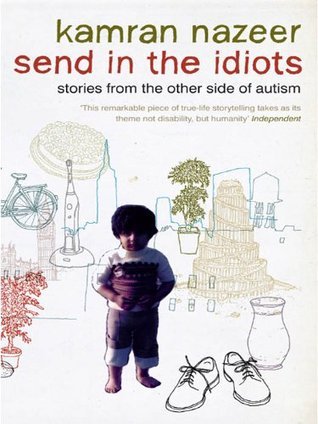What do you think?
Rate this book


242 pages, Kindle Edition
First published March 6, 2006
Had I not known to look for such strategies, if historically I had not needed to do this throughout my life, then perhaps I would have done less well [.]
I'm drawn to this explanation [that testing results are affected by autistic children understanding that they are being tested] because it suggests that the children involved are smarter, cannier, less passive than the clinicians observing them assume. I was one of those children. I'd like to think better of us. I'd like to think we were winning.The whole deal these days with children, neurodivergency, neuroatypicality, and disability is how all fare under capitalism and the general kyriarchy. Take someone like me, who was raised in a manner that ensured I knew exactly how much my feeding, education, and general raising had cost my parents in time and, more importantly, money. I can't even imagine how my "childhood" would have gone had I never refrained from shutting up and doing exactly what I was told up until it was either stop doing that or jump off a bridge, as there was no room whatsoever for anything that would compromise my status as "prime financial investment." For anyone autistic or mentally/physically disabled, either you succeed enough on a "genius" level to be worth what is deemed to be "excessive" financial investment, or you're excised as cleanly and quickly as possible, and what can't be so directly done these days in the form of Nazis sterilizing the "unfit" is normalized instead through politics, pamphlets, and those who describe autistic people standing up for themselves as advocating "that their self-enclosure is or ought to be permanent." For if Nazeer's documentary style testimony is anything to go by, the problem isn't autistic folks' "self-enclosure", but non-autistic people refusing to step out of their capitalism, protestant work ethic, pull yourself up by your bootstraps or be free to starve on the streets mentality and realizing that, actually, your method of human sacrifice isn't more righteous and certainly isn't more humane than then the Ancient Greeks abandoning physically disabled infants to the elements. In other words, if Nazeer had forgone his visits with the "professionals" and instead expanded his view of his fellow classmates to far greater diversities, he would have gotten a much better grasp of things, perhaps even to the extent of getting out of his "representative democracy" neoliberal bemoanings and realizing his position was won on the backs of protestors, not people complacently filling out requests for information and passively going ho hum when such is suppressed. As it stands, I personally got something out of this text, but I wouldn't trust it with anyone who hasn't honestly engaged with autistic folks long enough to treat them as human beings, rather than as stock portfolios.
And those who are good at argument, the logical, the single-minded, the dominating types, well, don't they often have terrible opinions?I'd like to read more books of this type, but as can be seen, they can be very hit or miss in terms of their humanizing potential. A decade and a half on from the time this was published, I'd like to think that a lot more good stuff has come out that come from a similar place of authenticity but are a lot less complacent in the face of the intersection of autism with the status quo, but money remains an issue, and the public face is still unfortunately represented for the most part by the patronizing blue puzzle piece. How all that's been impacted by COVID and every other instance of a variation of the Triangle Shirtwaist Factory fire that's occurred in the last two years is a very complicated question, but I'd like to think that it's harder to smudge things over with survivorship bias and "because capitalism" these days, so perhaps questions of accessibility and neurodivergency will accompany those on distance learning and communication technology. In any case, for all my foibles, it was nice to accompany my more scattered pieces of learning on autism and associated matters with something a tad more cohesive, and I could see certain passages doing autistic readers a whole lot of good (so long as they were prepared for the ending fallout). Indeed, certain passages did me a whole lot of good, for when it comes down to it, my ability to reach satisfying levels of executive functions, jump through various hoops, and otherwise ask "How high?" and deliver in most scenarios does not at all mean that the barrier between me and autism is iron clad. It's not as if I turned to this as a self help book, but it did end up being a good reminder of the hopeful realities of things, as well as of the work that needs doing to realize those realities.
Yet, in our view of [genius and progress], we seem only to ascribe value, we seem only to admire and remember and venerate the individual, not what was there before or what lay beneath. This is an autistic view of intellectual and social progress, one focused on the role of the autos.